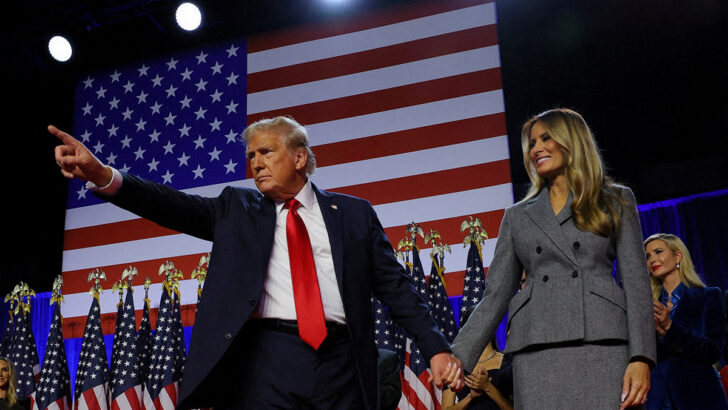Despite 54% of Catholic – and 60% of non-Catholic Christians – voting for Donald Trump, according to exit polls, it would be naïve to rely on him to preside as a Christian leader of the world’s most powerful country.
However, the voting trends which saw the President-elect win the election with a popular vote surplus of four million surprised even the most optimistic of supporters. Surprising many, he gained a 10% increase in Hispanic voters, a growing and increasingly important voting bloc, despite perceptions that his stance on immigration would count against him.
Kamala Harris, having campaigned on a strongly gendered female position, failed to gain from this block compared to Joe Biden four years ago.
Harris made no gains at all in any significant category, while Trump made many small, but significant gains which contributed to an effective landslide. If any lessons are to be learned, it is that a failure to recognise that people vote on concrete issues that affect them directly rather than voting on concepts and ideals.
Harris focused on reproductive rights (abortion) in her final push, an issue that directly resonates with only a subset of the population, reflected in exit polls which showed she fared best with the demographic of reproductive age, while Trump’s focus on immigration and the economy resonated with the wider population. It is hard to tell whether his vacillation on abortion – and Melania’s biography standing directly in the ‘reproductive rights’ camp – gained or lost him support.
Since the 2022 decision to reverse Roe v Wade, delegating decisions on abortion to the State level, the subject is less of a critically decisive issue – although it remains divisive. The Dobbs v Jackson decision – and the denationalising of abortion – is a direct result of Supreme Court appointments made by Trump between 2016 and 2020, putting in place a slim ‘conservative’ majority, even if his appointees don’t always live up to their conservative credentials.
It is somewhat ironic that on the same day as Trump was returned to power, that the pro-life cause suffered a number of losses in 7 states, only partially offset by victories in 3 states. Colorado, Maryland, Montana, Nevada, Missouri and Arizona – states where abortion was already very liberal, voted to enshrine some form of right to abortion in their State-level constitutions. Efforts to extend abortion rights in Florida, Nebraska and South Dakota were rejected.
Catholics moving to majority support for a Republican candidate is a significant shift in US politics – and with the Catholic population increasing primarily through immigration through its Southern border and a higher fertility rate amongst recent immigrants, the Catholic vote is becoming increasingly important and increases in the Hispanic vote for Trump highlight not so much that he is friendly towards Catholics and Christians – but that he is not ideologically hostile to what the Catholic faith holds valuable.
Some may argue that his stance on immigration is at odds with Christian values to welcome the stranger, this entreaty towards individual values is often conflated with what is sound public policy. Voters in the States have become tired of being gaslit by their elected representatives, celebrities and the wealthy establishment who live insulated from the impact of the disruption caused by unregulated and uncontrolled immigration.
The response of the Hispanic community surprised many who failed to understand that alongside poorer Americans, it is the first- and second-generation immigrants to the US, who feel the impact of the disruption, dislocation and criminality that comes with the chaos of porous borders.
Just as the residents of Beverly Hills or Silicon Valley are immune to the negative aspects of illegal immigration and gain all the benefits of cheap labour, they tend to be on the opposite side of the culture wars from those same communities who chose Trump’s message that focused on the practical aspects of the daily lives of the voters.
Politicians, journalists and celebrities have louder voices and greater access to the platforms that inform debate for 365 days a year, year after year, but one day, every four years, the voiceless have the loudest say.
If they are not being listened to, if they are rendered powerless and their concerns unheard, the bubble of the echo chamber can be rudely burst. Not just in America, it is happening in Europe, and could happen in Ireland yet.


 Republican President-elect Donald Trump gestures alongside his wife, Melania, during his rally at the Palm Beach County Convention Centre in West Palm Beach, Floride, November 6, 2024, after being elected the 47th president of the United States. Photo:OSV News/Brian Snyder, Reuters
Republican President-elect Donald Trump gestures alongside his wife, Melania, during his rally at the Palm Beach County Convention Centre in West Palm Beach, Floride, November 6, 2024, after being elected the 47th president of the United States. Photo:OSV News/Brian Snyder, Reuters 